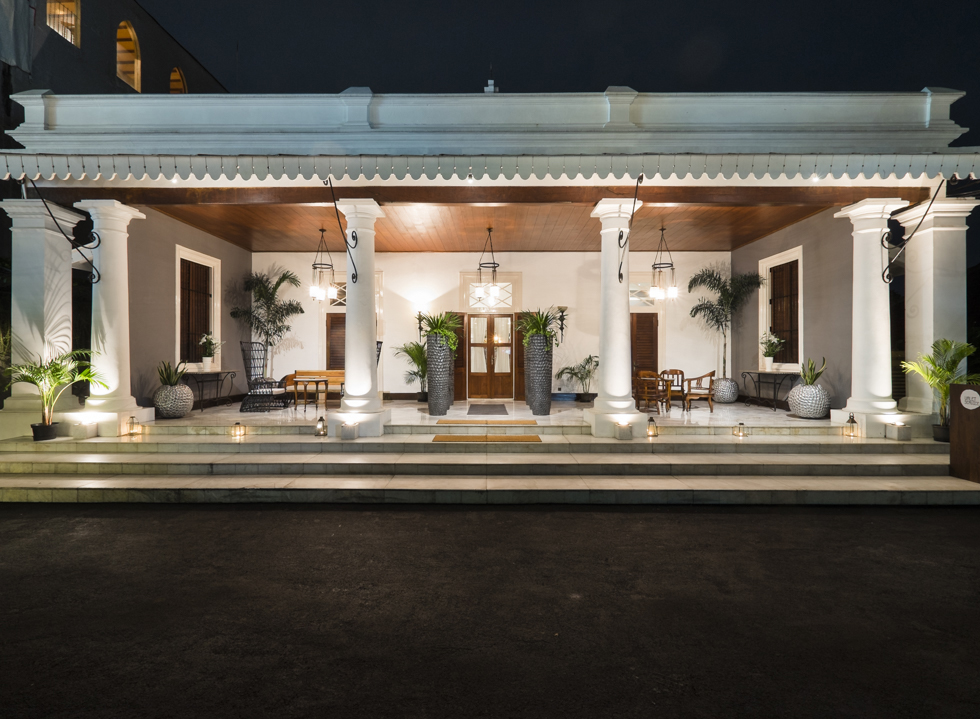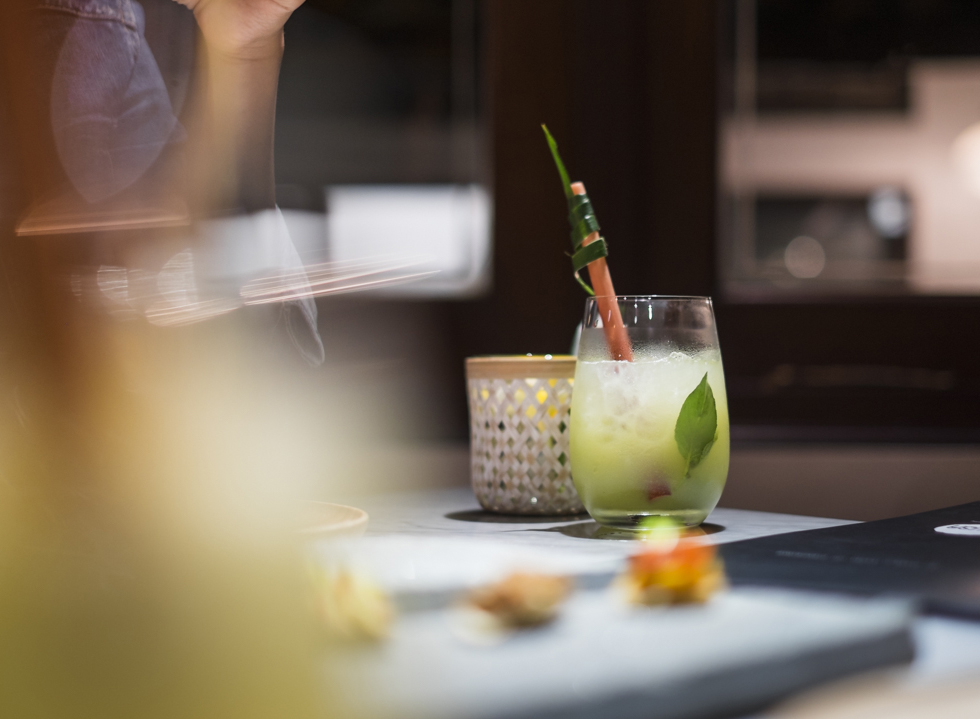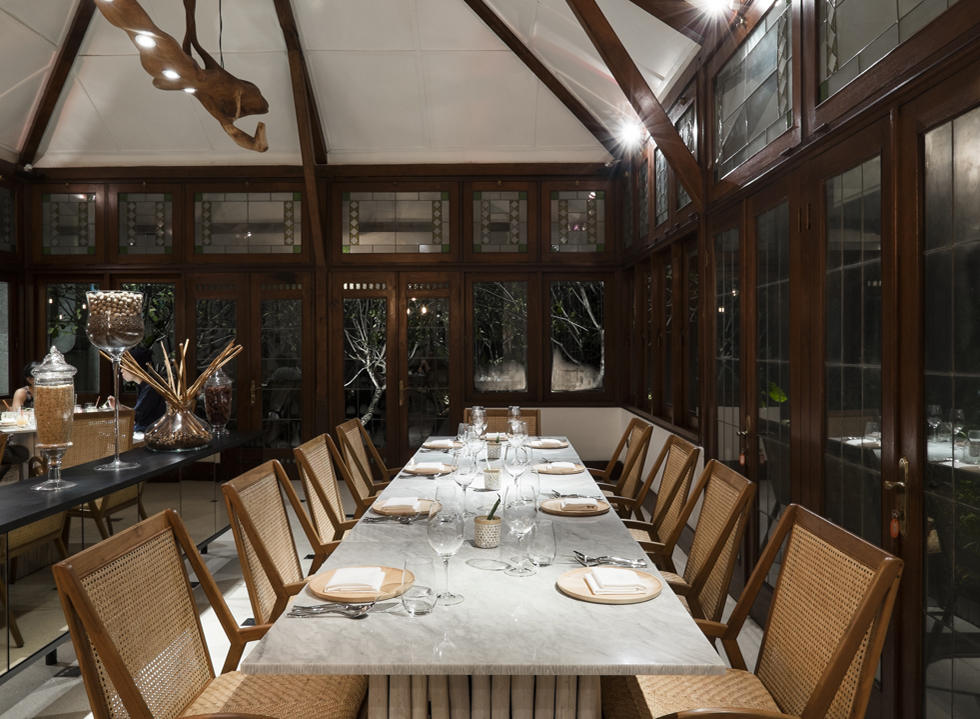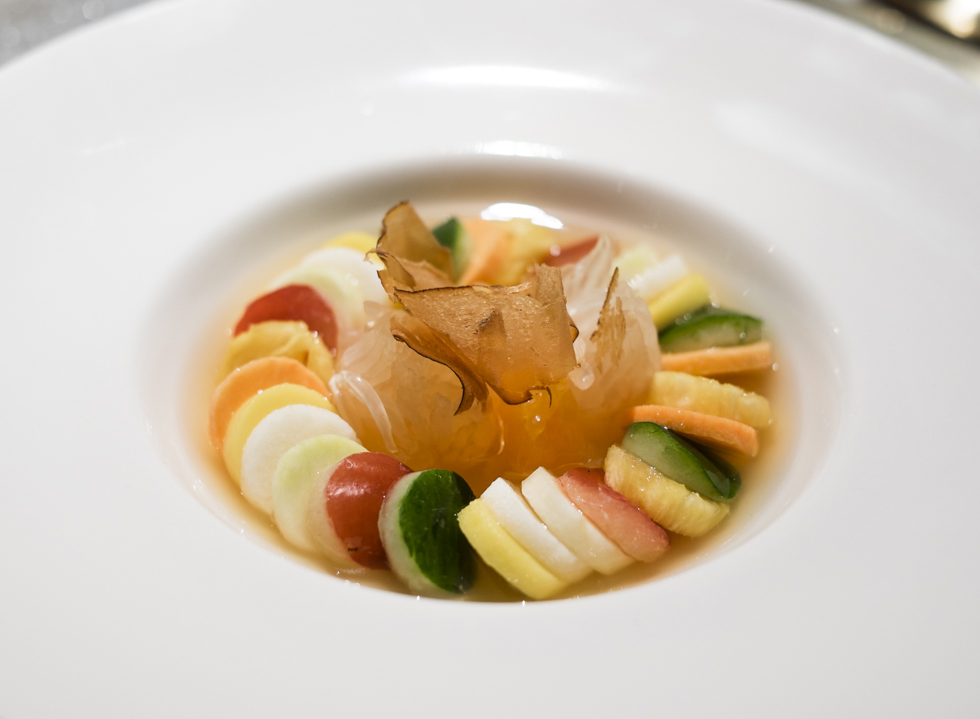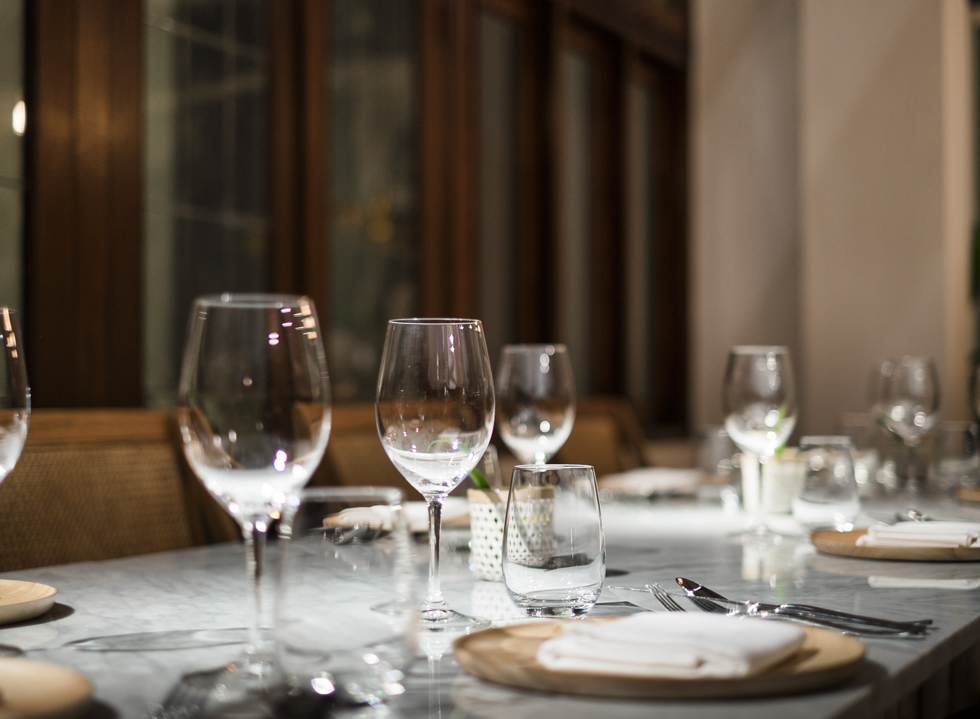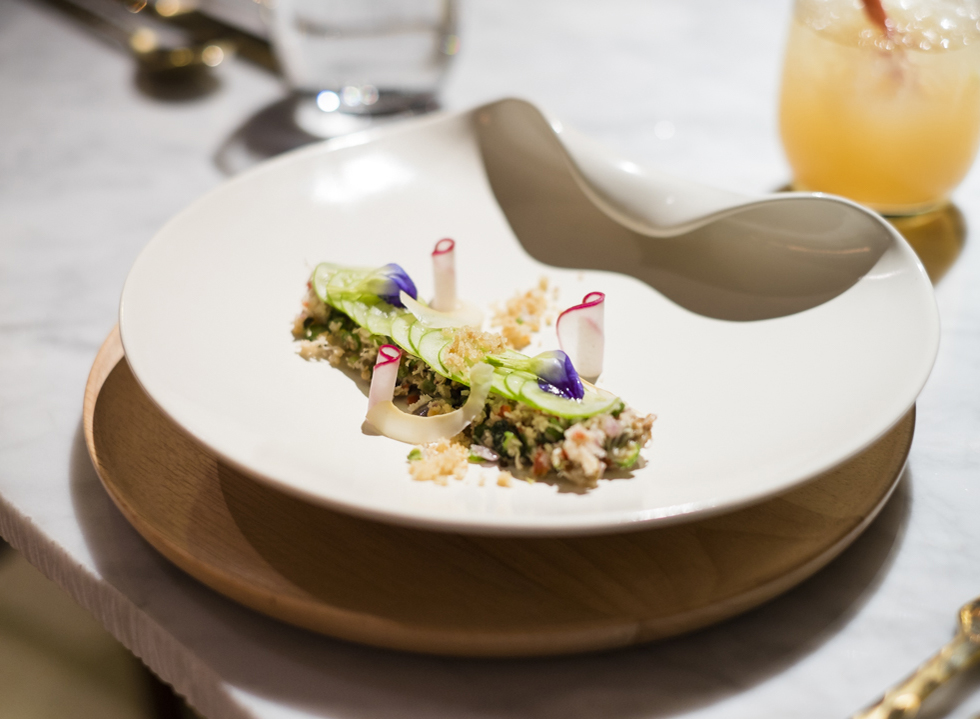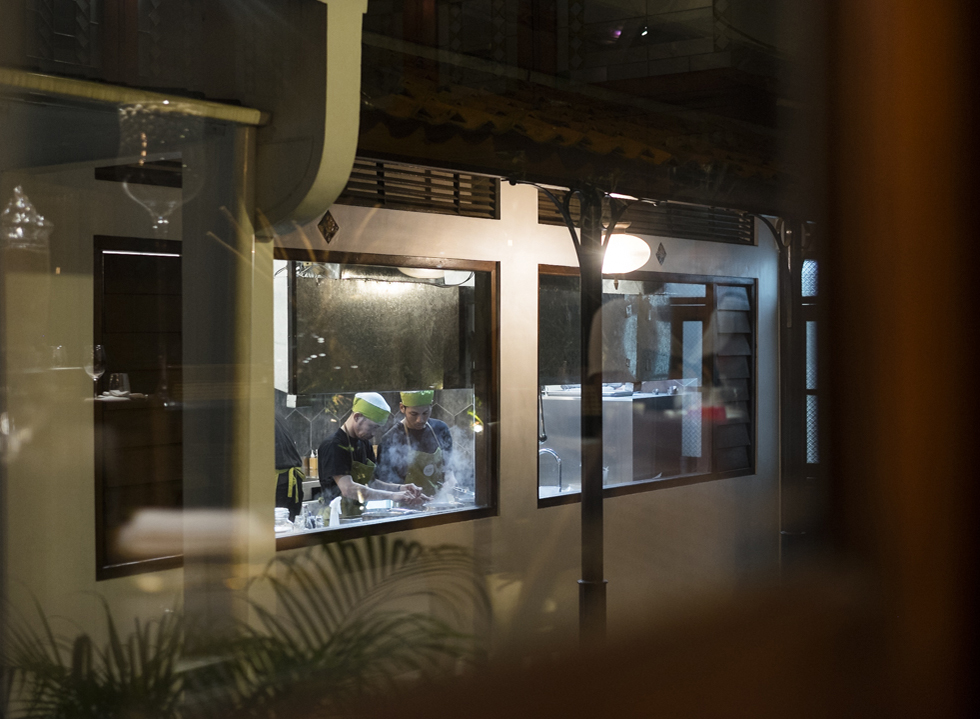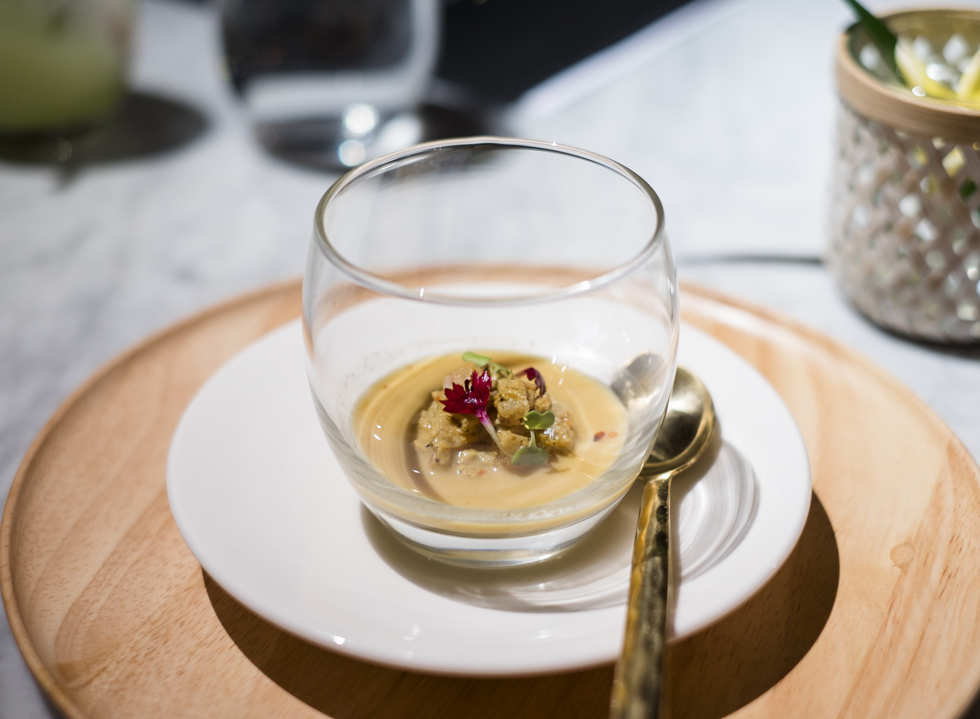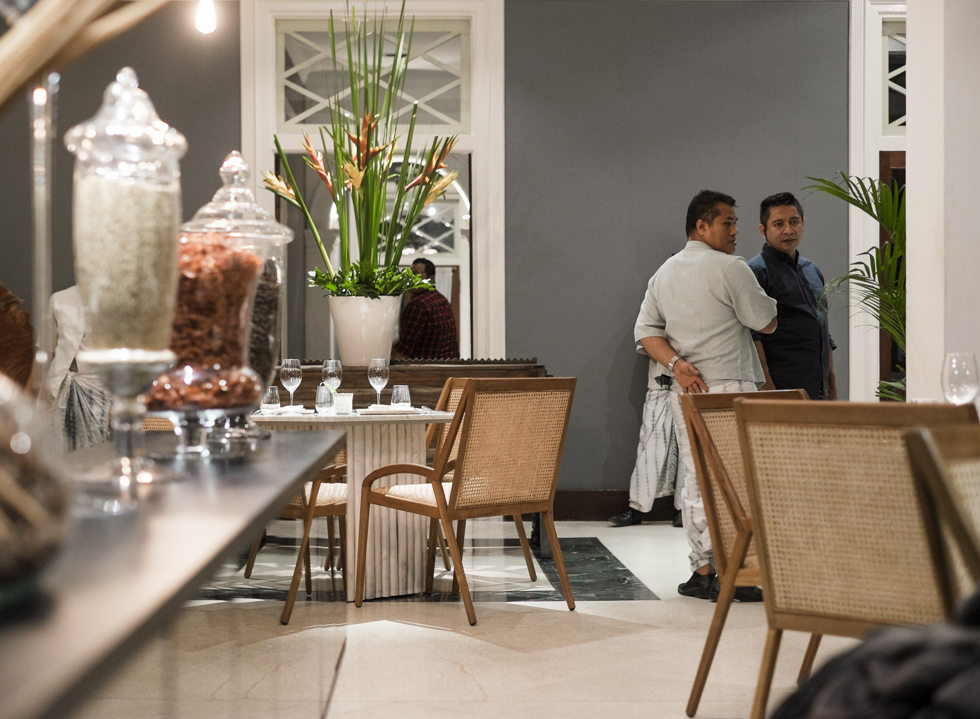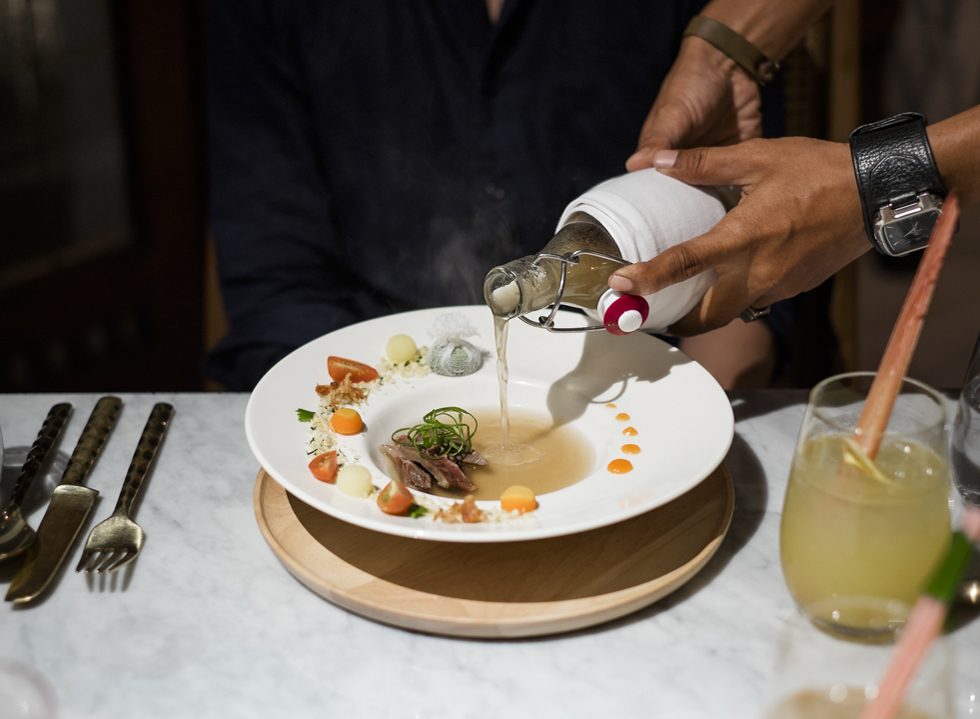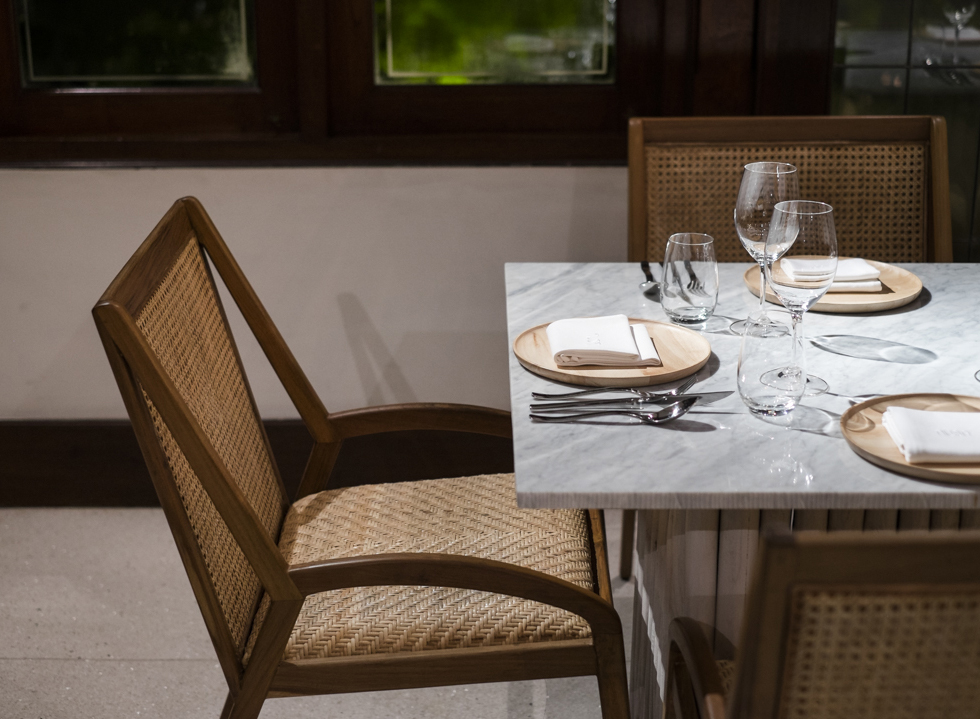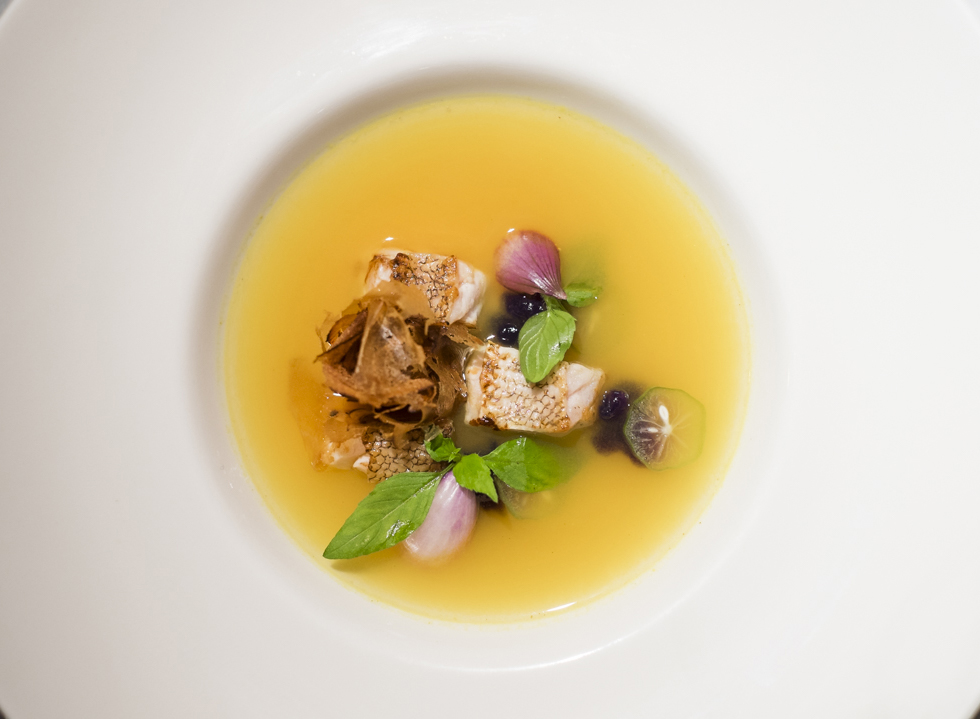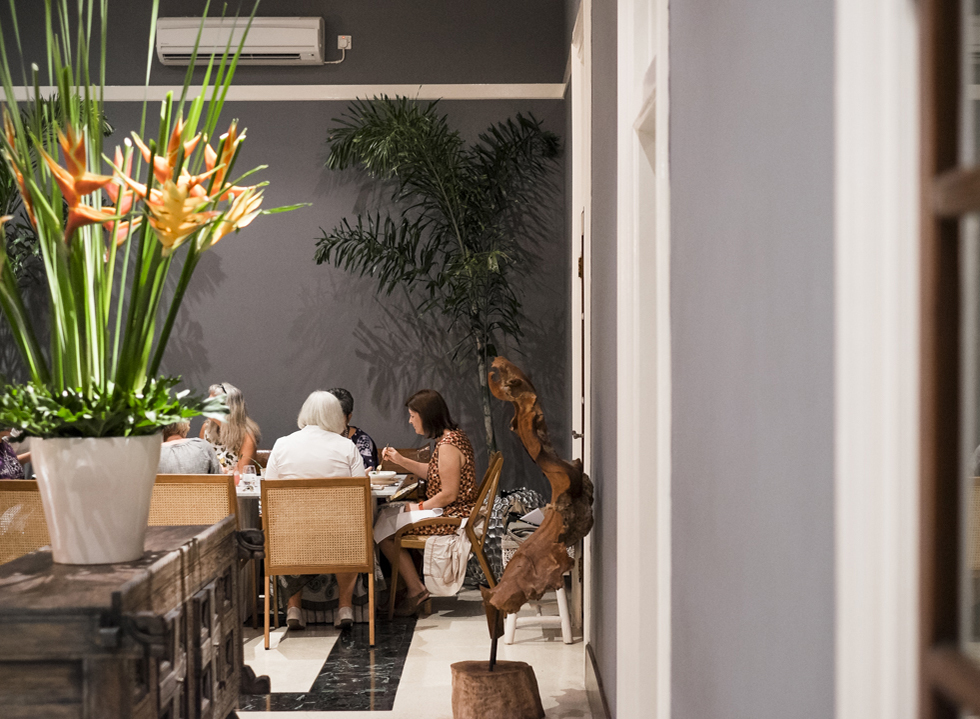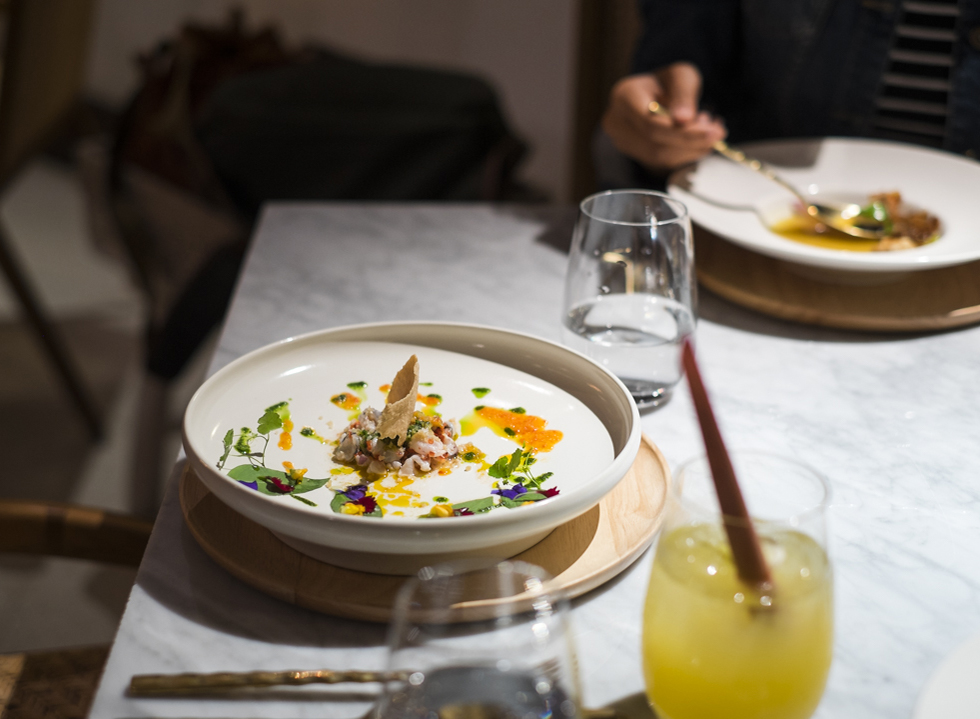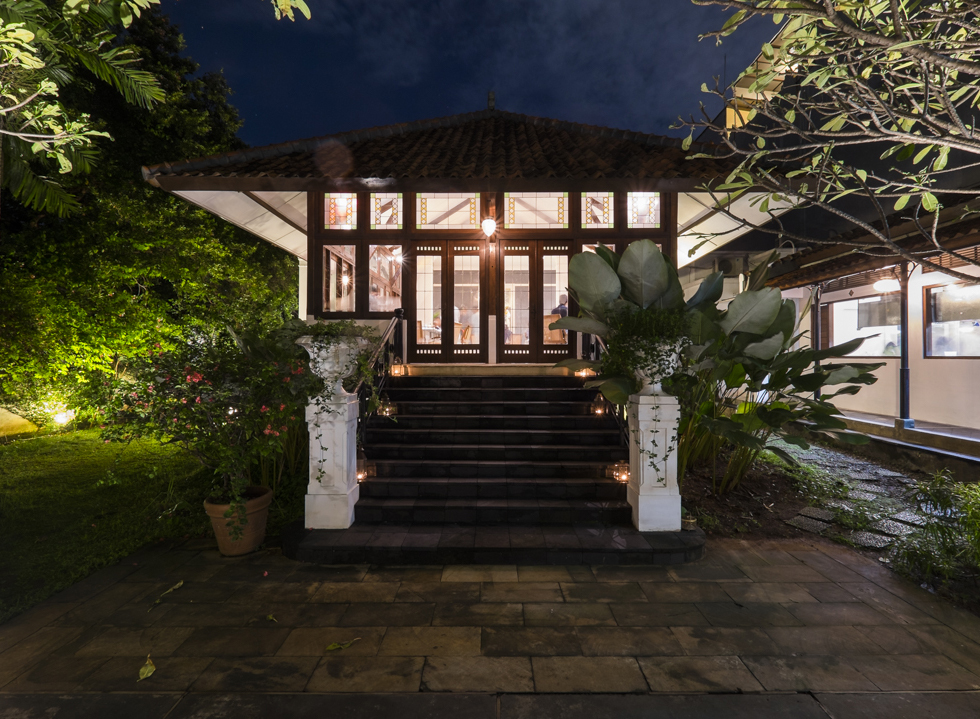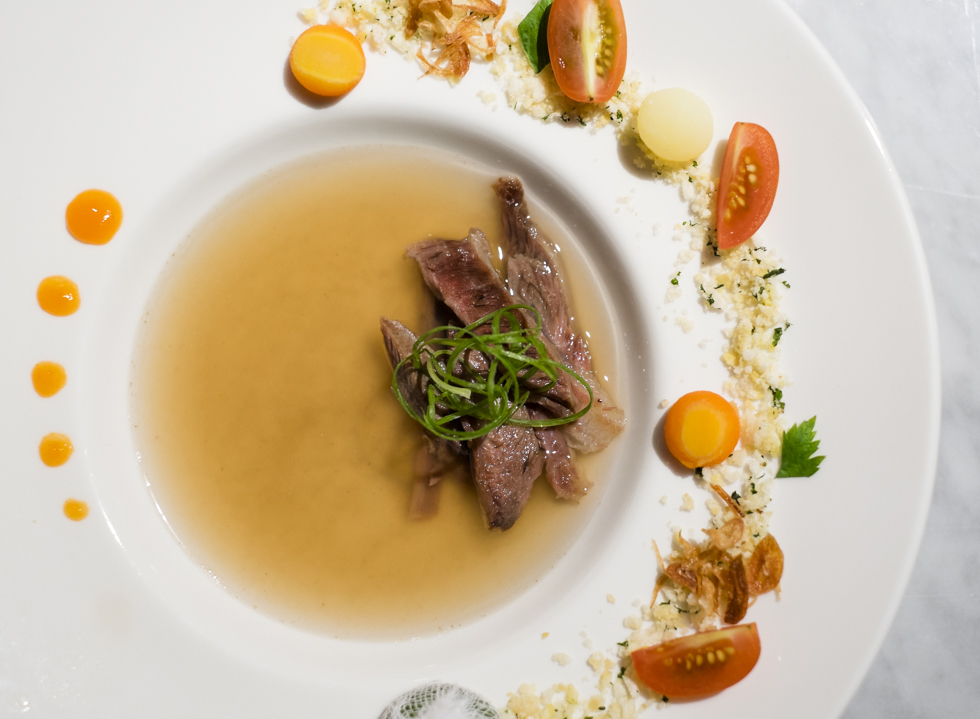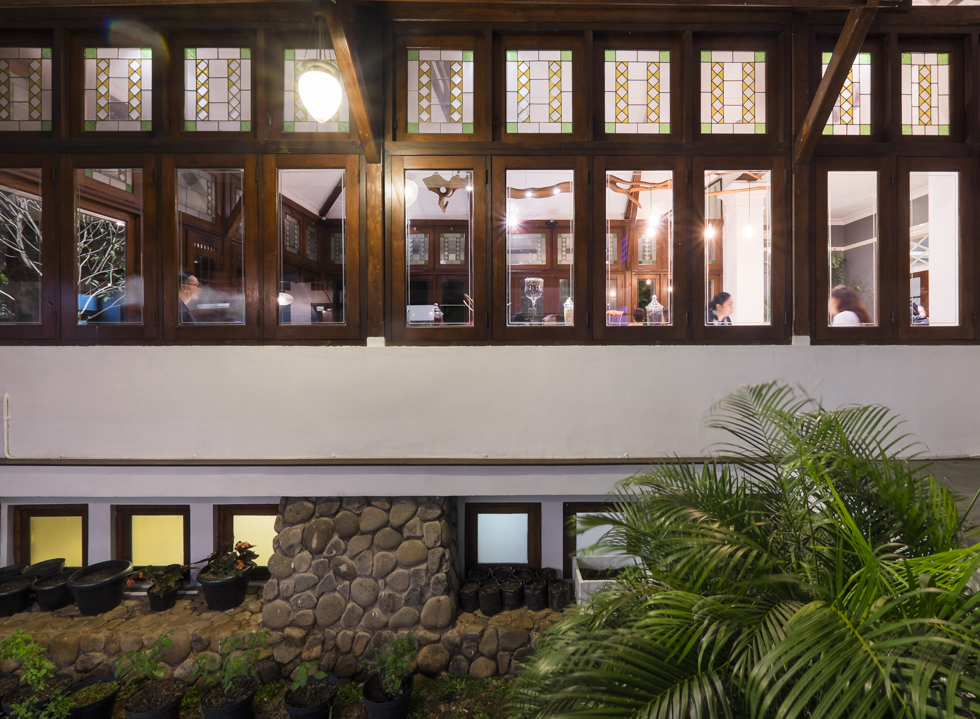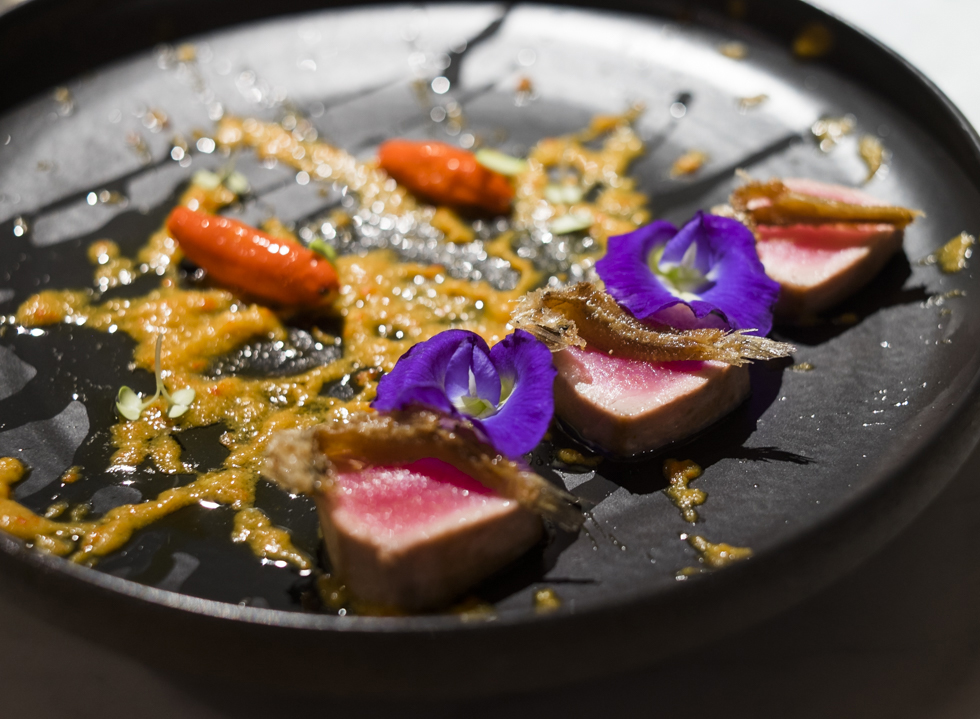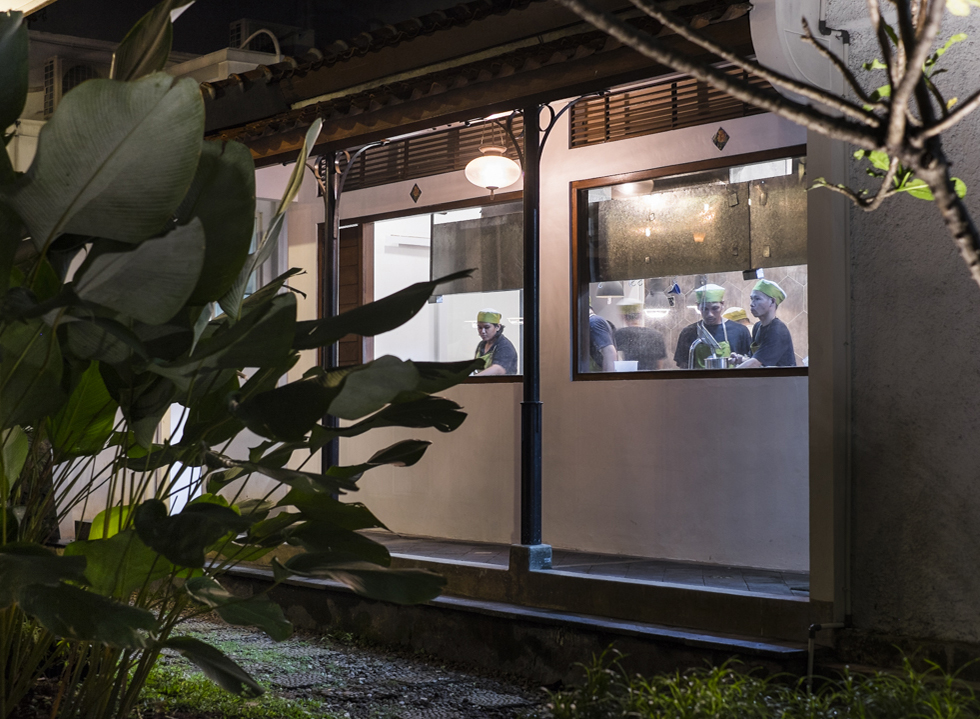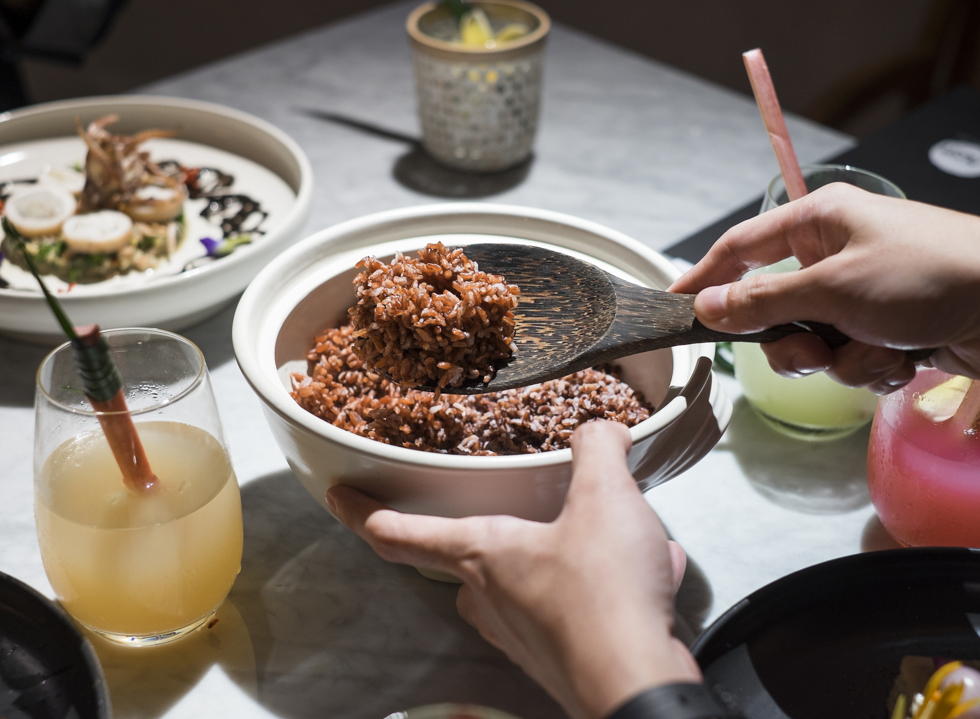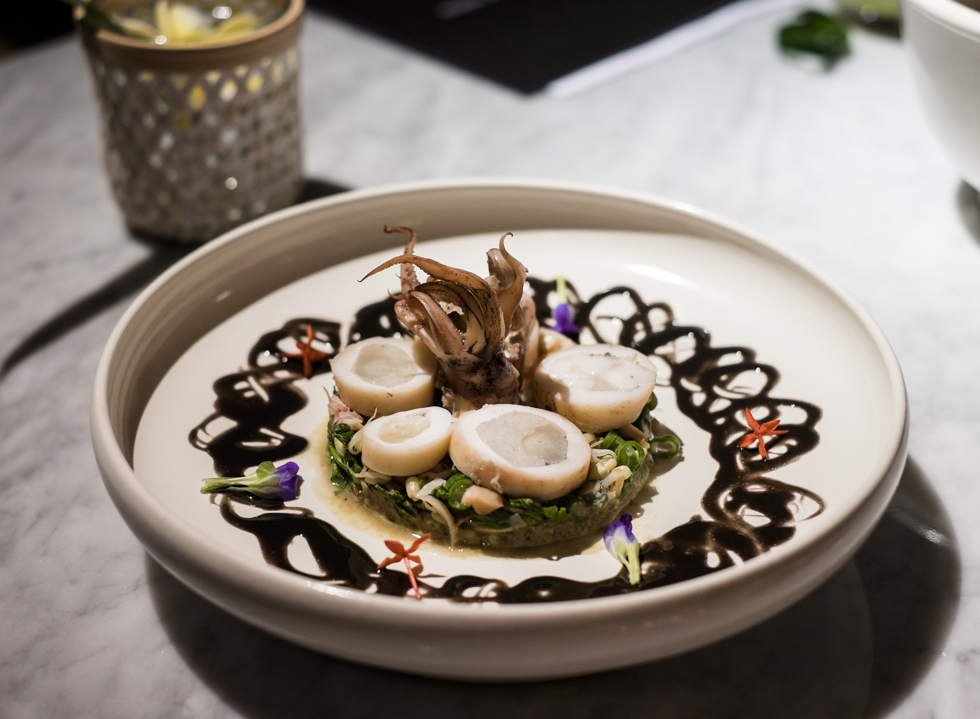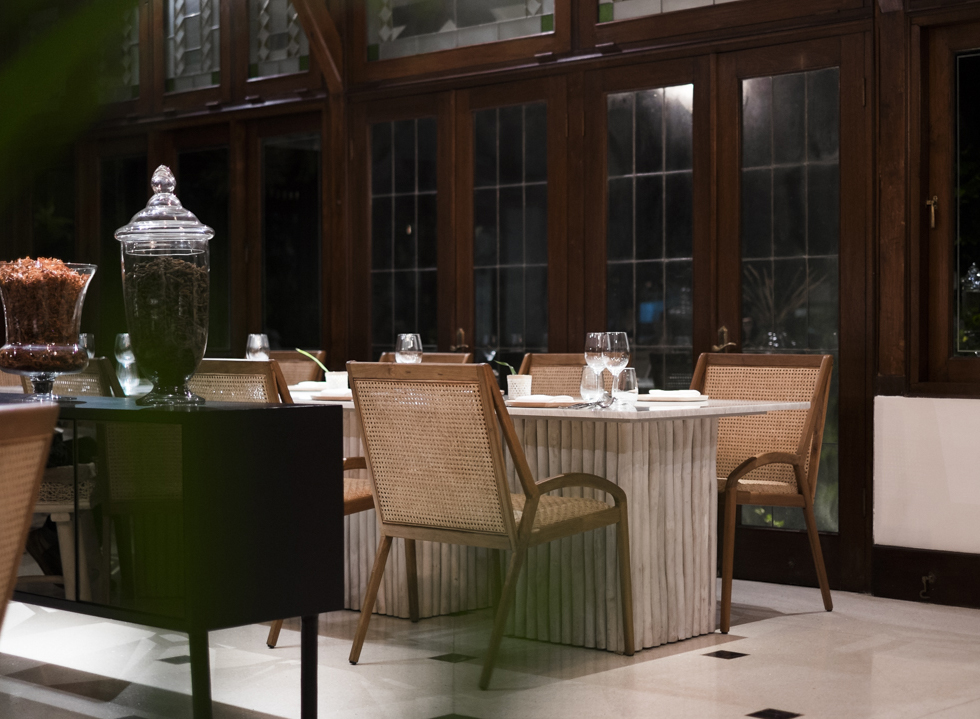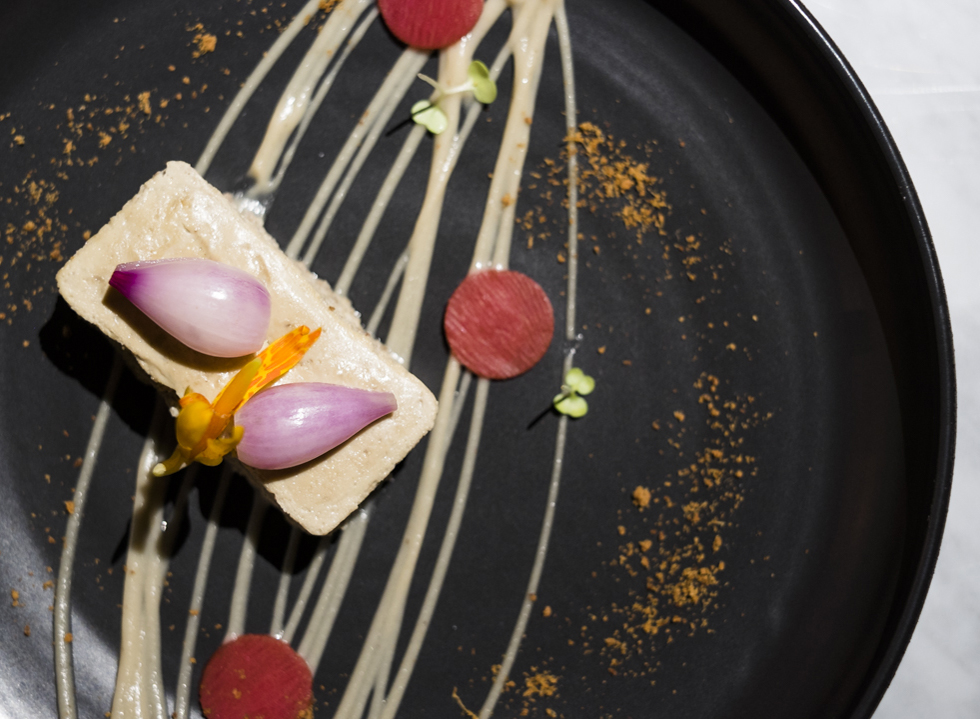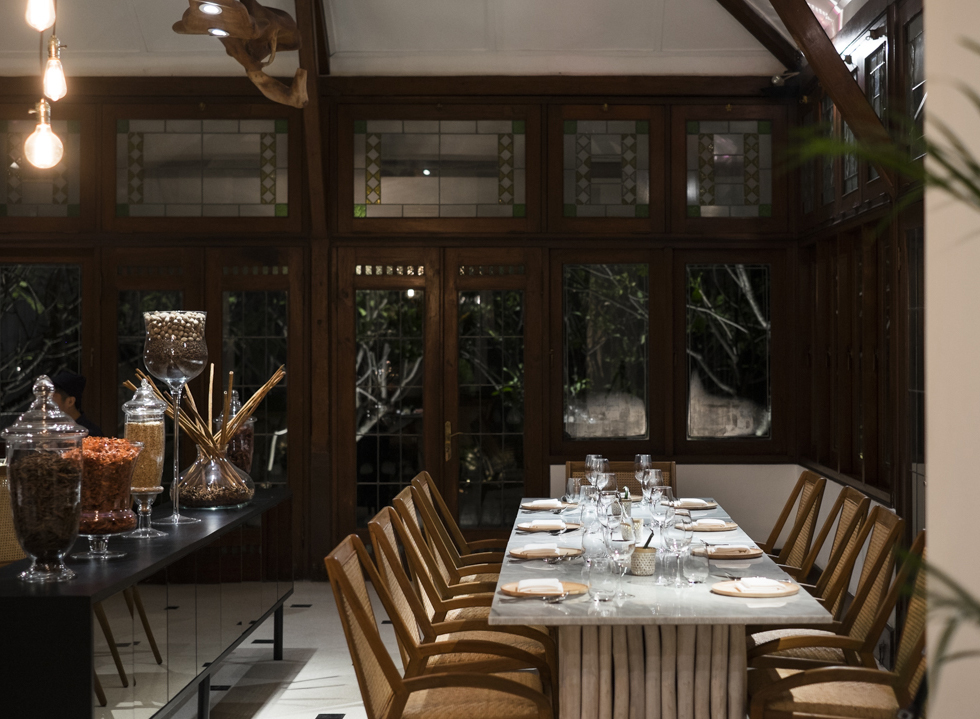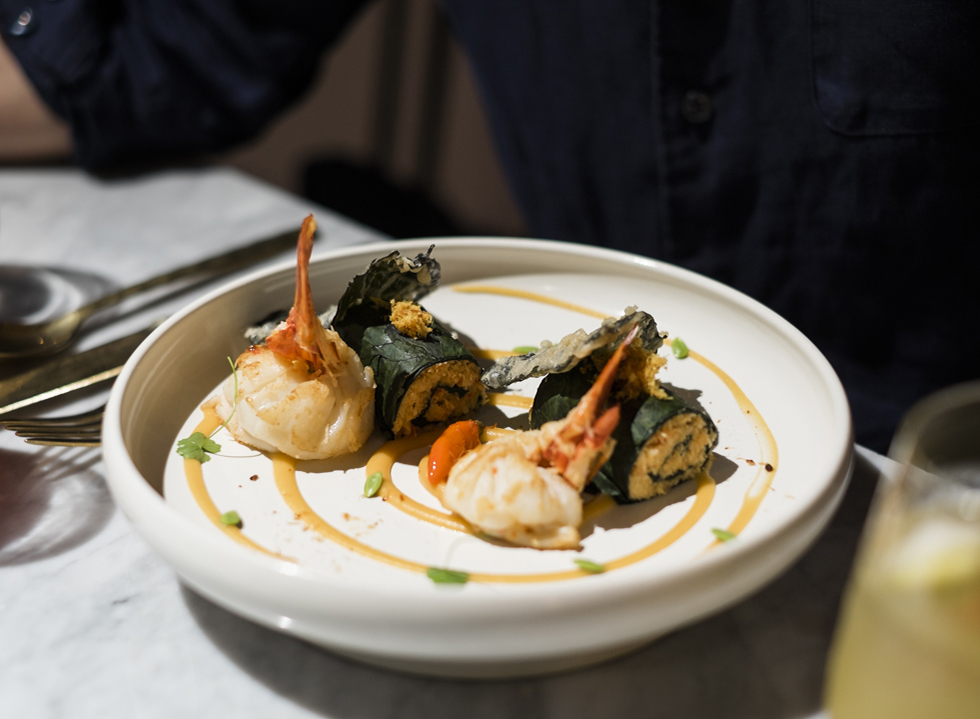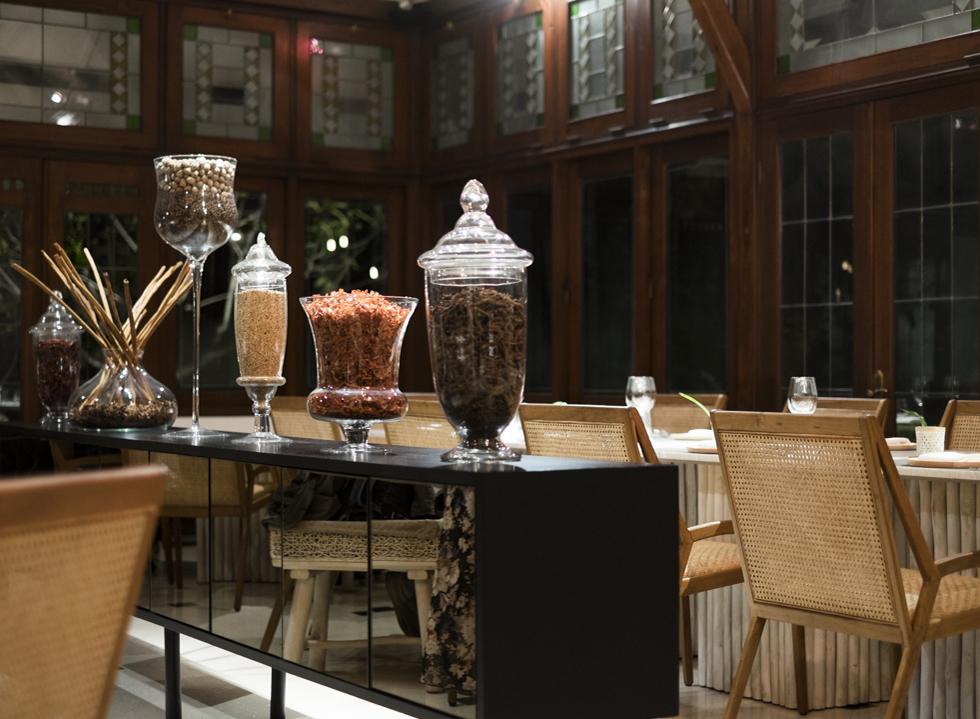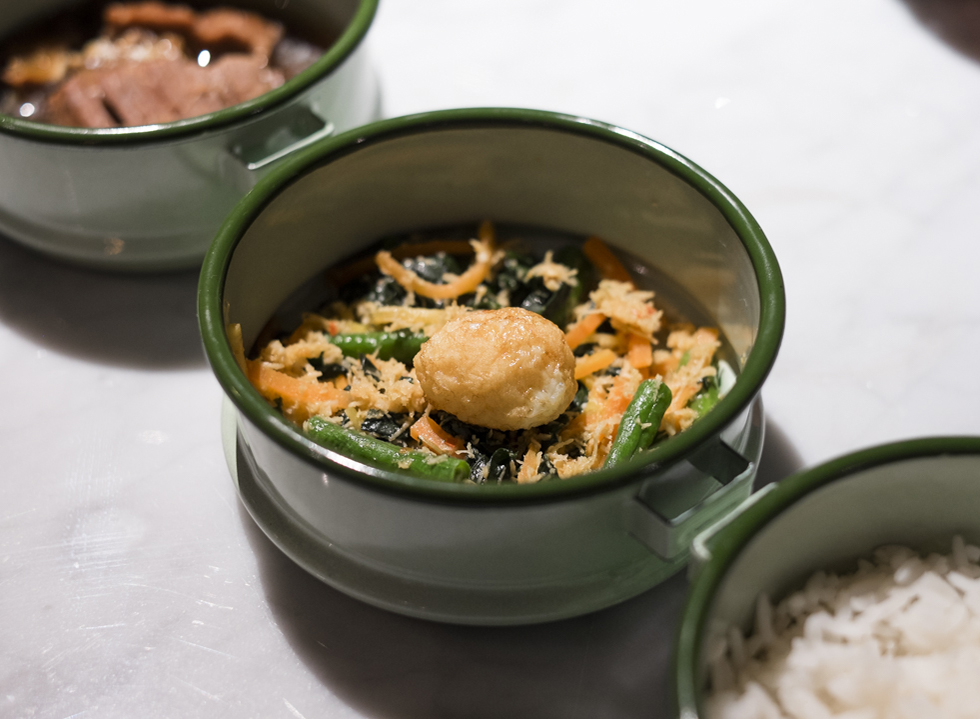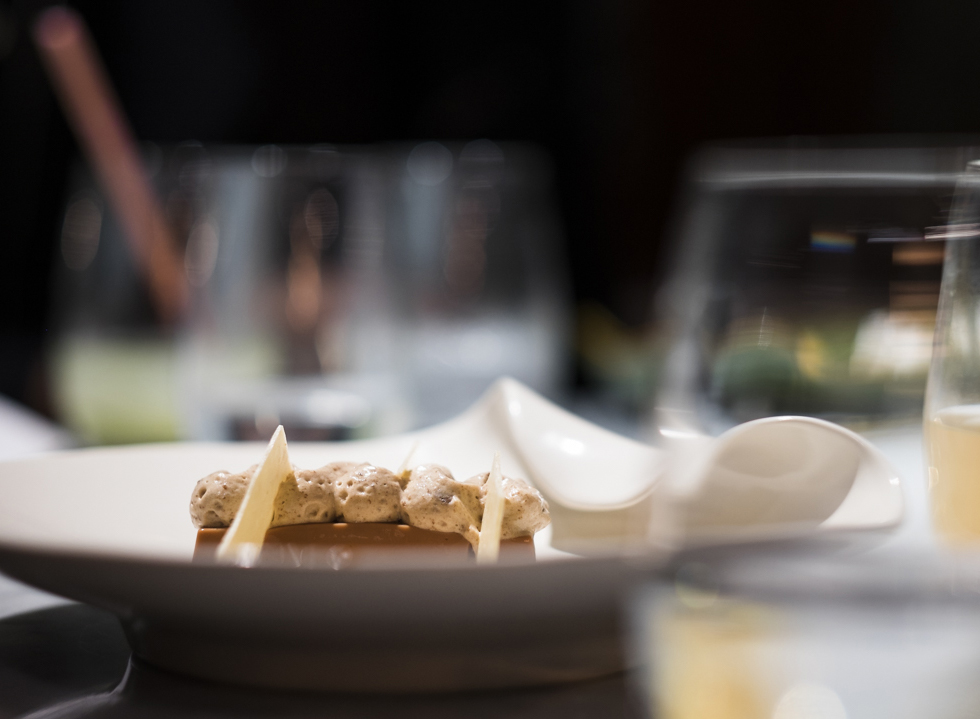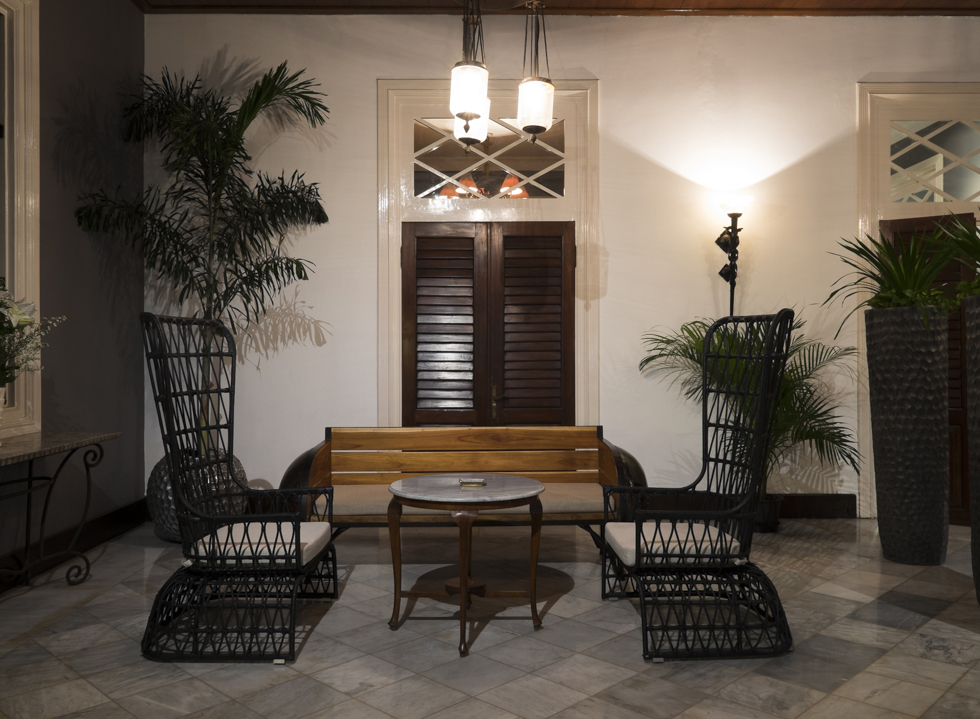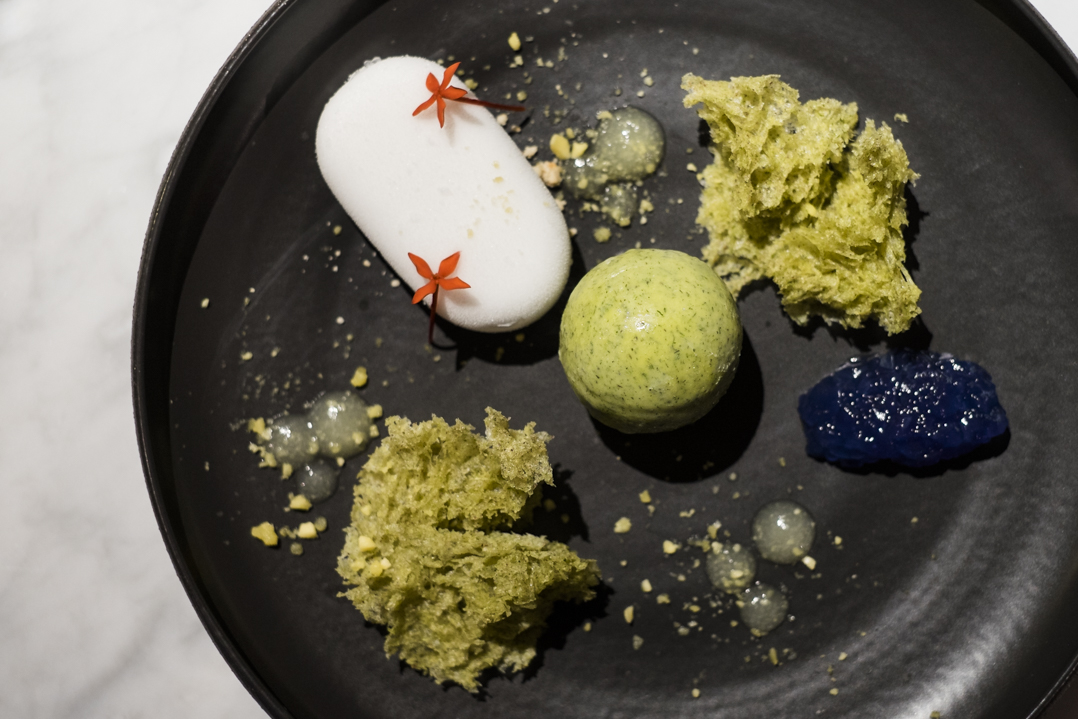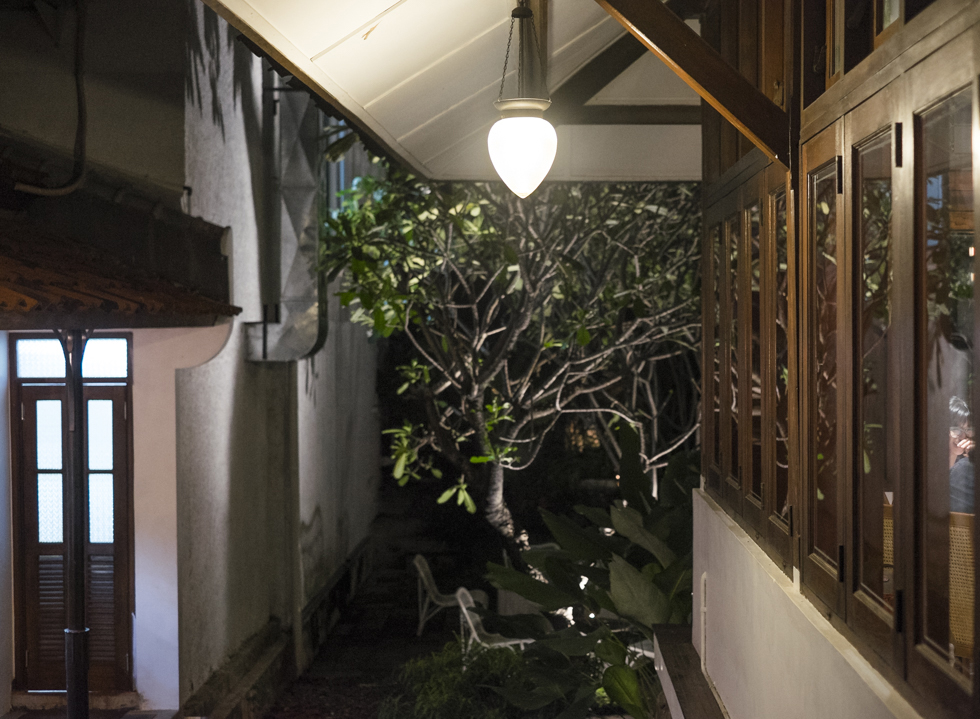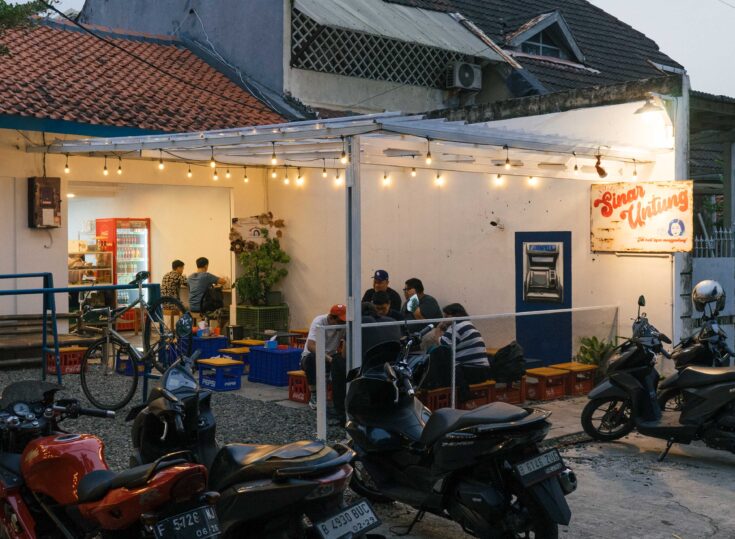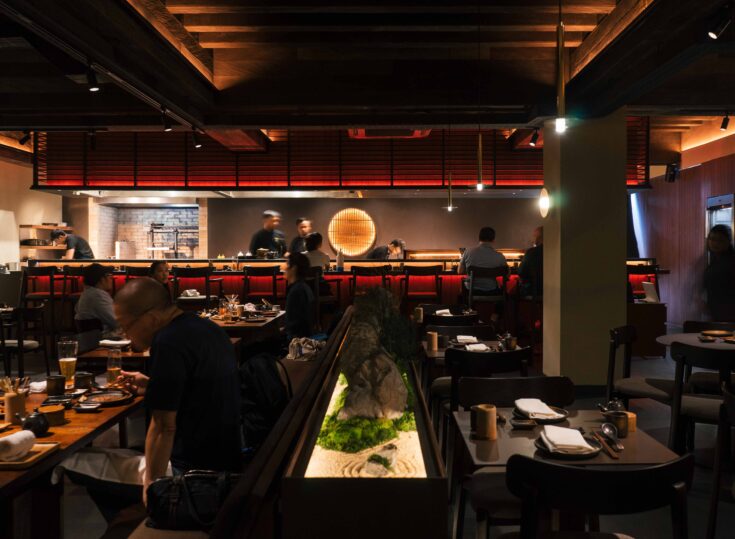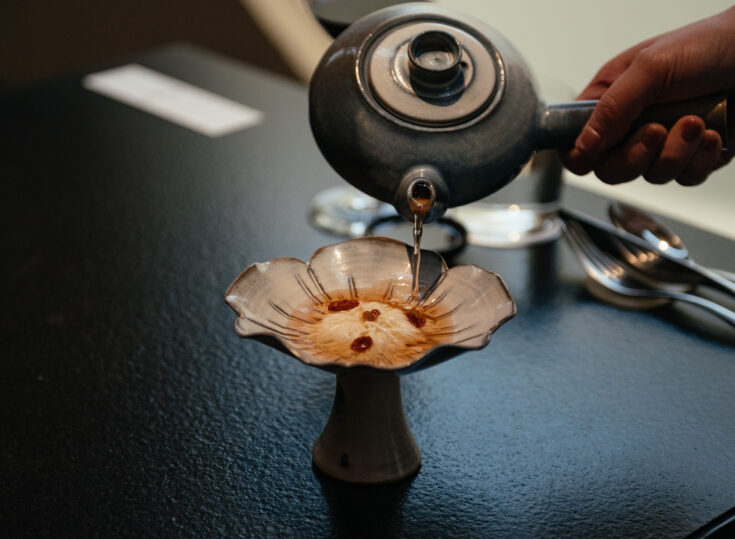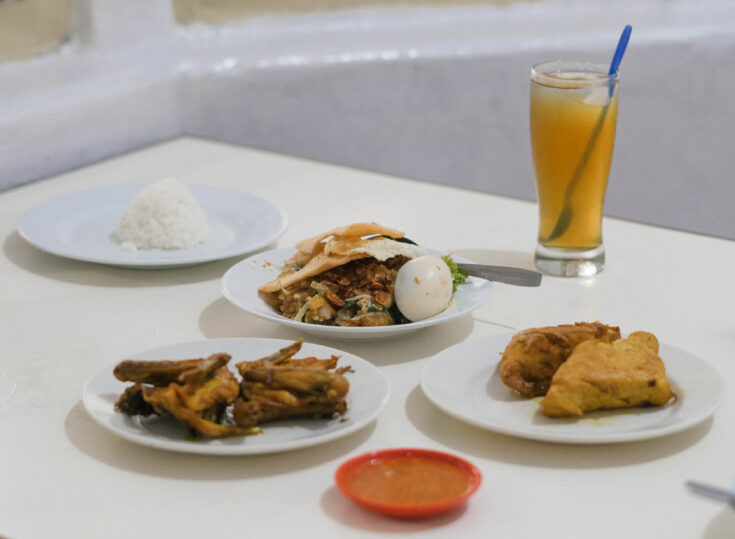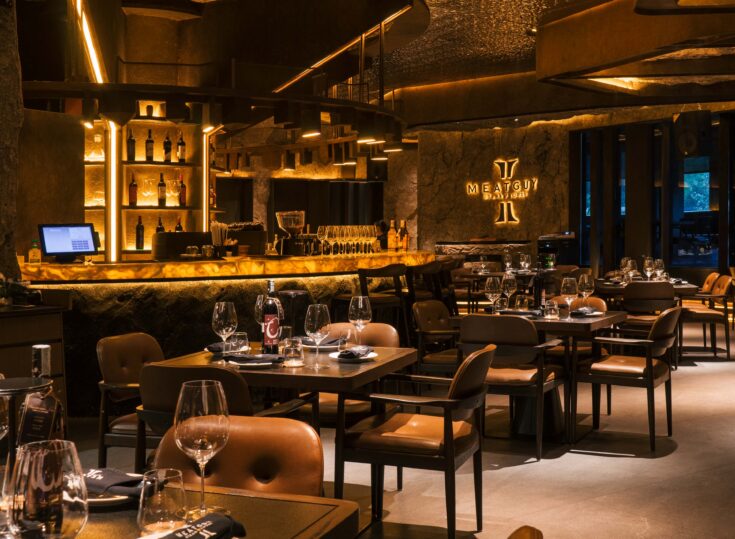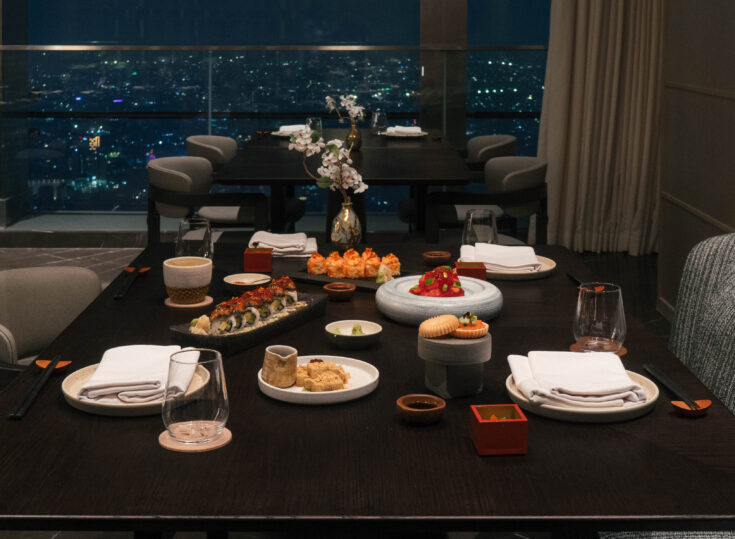Na Niura, fresh raw fish prepared with Andaliman spice and Jungga lime, sounds like an Asian-fusion dish concocted from an experimental restaurant. In fact, it’s a traditional Batak dish that was once reserved only for kings. And that’s just one out of the many other dishes to hail from the tip of Sabang to the tail of Merauke.
Housed in a refashioned old Dutch residence in Kemang, NUSA (short for Nusantara, which means the archipelago) is a fine place to start when it comes to expanding your lexicon of Indonesian gastronomy. Headed by Chef Ragil Imam Wibowo, the focus of NUSA is to present these traditional native dishes in contemporary ways.
To wit, Sup Kambing Betawi is served deconstructed with ingredients lining the edge of the bowl. And among the handful choices of refreshing house mocktails, one of them is Sayur Asem that is just as the name suggests, which surprisingly tastes better than it might sound.
Guests would notice the apparent lack of decorations in NUSA; the walls are stripped clean from any paintings or the likes. Whether on purpose or not, it’s not as if one would need much push to get the conversation rolling in NUSA. Once a dish is placed in front of you, server politely requests to present the stories about the origin of the dish.
Some information and details of the course, especially its ingredients, are far-fetched (in a good way) that it feels as if they were plucked from Roald Dahl’s books. For instance, the Pelawan mushroom, used in Ayam Lempah Kulat Pelawan, is indigenous to Bangka Island and according to the locals, one of its growth requirements is heavy thunderstorms. Even the free-range chicken used in the said dish is reared with jamu added to its diet.
Dinner only comes in the form of three or five-course meal, where it can stretch for more than two hours. This is why dining in NUSA is ideal when one is not time-strapped. Perhaps recognising the fact that such lengthy dinner might be stifling for some guests, one can opt to close the meal by enjoying desserts in the comfort of the establishment’s backyard.
Bringing unfamiliar and unusual traditional Indonesian dishes to the attention of wider audience is no doubt a lofty ambition given the size of the country. That’s why instead of hammering the virtues of comprehending these dishes, NUSA zeroes in on letting the taste do all the talking, and that in turn, leaves a lasting impression.
